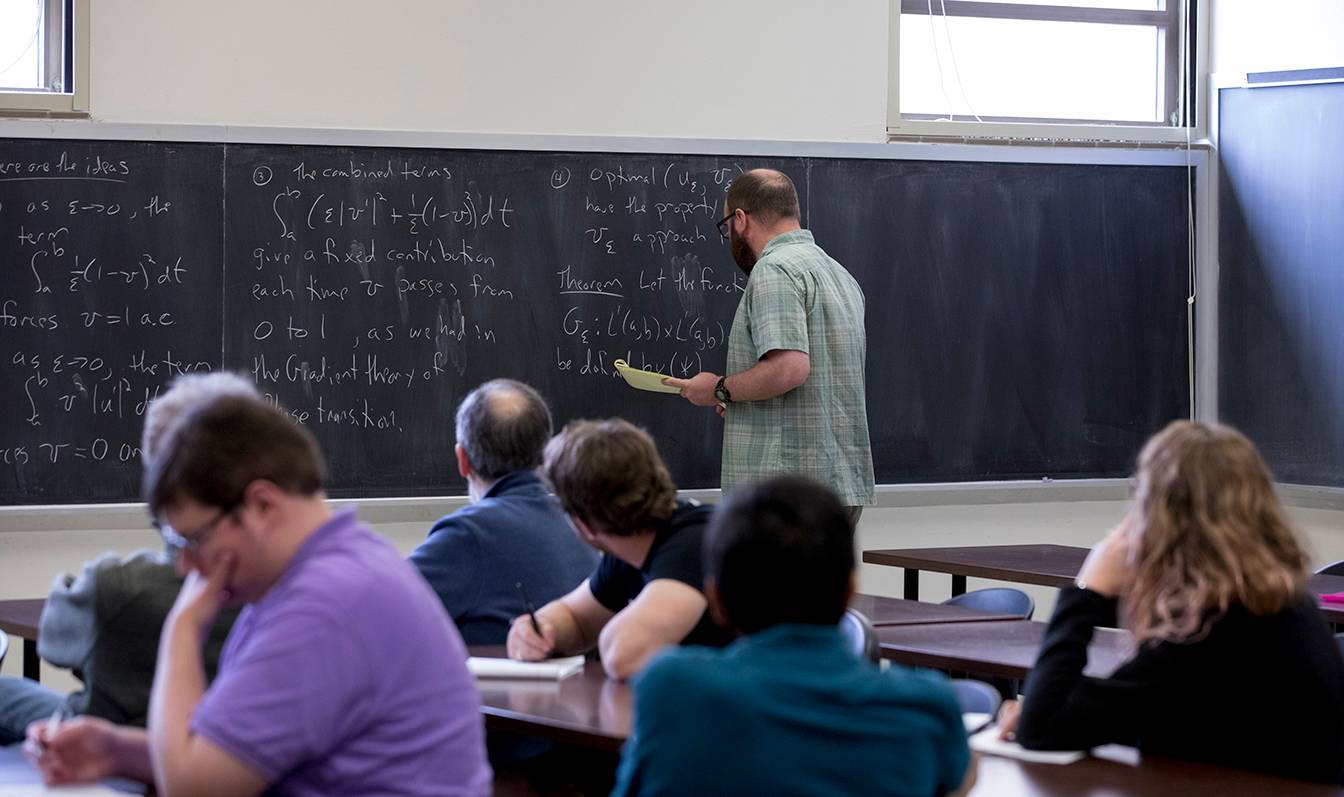Jayme Blaschke | May 22, 2023

Some college students have difficulty with mathematics not because they are unable to learn but because they don’t believe in their capabilities. While various strategies have been proposed for addressing this self-defeating mindset, few have been compared to determine which are most effective.
With a grant from the National Science Foundation (NSF), Carlton Fong, an assistant professor in the Department of Curriculum and Instruction at Texas State University, and Taylor Acee, a professor in the Department of Curriculum and Instruction, are set to study the impact of psychosocial factors on students’ success in math.
The three-year, $478,000 grant will support the study, “Psychosocial Interventions to Improve Postsecondary Student Mathematics Attainment: A Meta-Analysis Exploring What Works and for Whom.” Fong will serve as principal investigator (PI) with Acee as co-PI.
Fong and Acee will collect and assess the accumulated evidence from prior studies on psychosocial interventions in college mathematics. Their findings are expected to help improve math outcomes for students in college, providing administrators and instructors with evidence-based practices to counter students’ psychosocial barriers to learning.
The key to the project lies in the large body of studies—both published and unpublished—that test interventions targeting psychosocial mechanisms to improve postsecondary students’ mathematics attainment. Drawing on this copious data, the Texas State researchers will categorize the various interventions based on psychosocial mechanisms targeted and aggregate the results. Systematic analysis is expected to reveal the effectiveness various interventions have in improving student outcomes in higher education math courses.
This project is supported by NSF’s EDU Core Research (ECR) program. The ECR program emphasizes fundamental STEM education research that generates foundational knowledge in the field. Investments are made in critical areas that are essential, broad, and enduring: STEM learning and STEM learning environments, broadening participation in STEM, and STEM workforce development.
Share this article
For more information, contact University Communications:Jayme Blaschke, 512-245-2555 Sandy Pantlik, 512-245-2922 |
